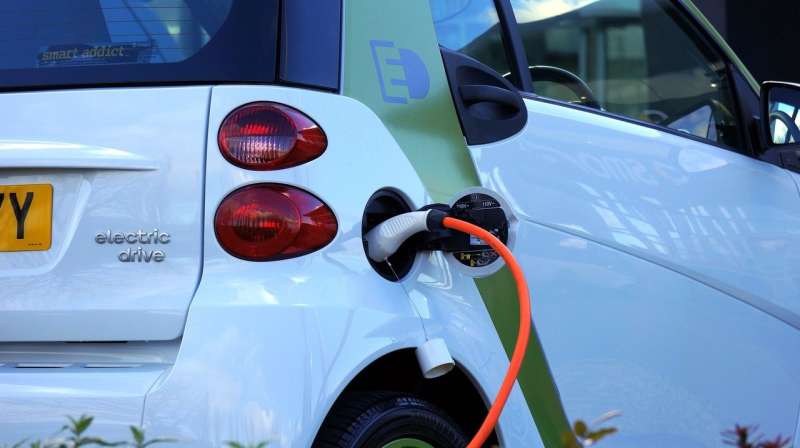Liquid battery could lead to flexible energy storage

A new type of energy storage system could revolutionise energy storage and drop the charging time of electric cars from hours to seconds.
In a new paper published today in the journal Nature Chemistry, chemists from the University of Glasgow discuss how they developed a flow battery system using a nano-molecule that can store electric power or hydrogen gas giving a new type of hybrid energy storage system that can be used as a flow battery or for hydrogen storage.
Their 'hybrid-electric-hydrogen' flow battery, based upon the design of a nanoscale battery molecule can store energy, releasing the power on demand as electric power or hydrogen gas that can be used a fuel. When a concentrated liquid containing the nano-molecules is made, the amount of energy it can store increases by almost 10 times. The energy can be released as either electricity or hydrogen gas meaning that the system could be used flexibly in situations that might need either a fuel or electric power.
One potential benefit of this system is that electric cars could be charged in seconds, as the material is a pumpable liquid. This could mean that the battery of an electric car could be "recharged" in roughly the same length of time as petrol cars can be filled up. The old battery liquid would be removed at the same time and recharged ready to be used again.
The approach was designed and developed by Professor Leroy (Lee) Cronin, the University of Glasgow's Regius Chair of Chemistry, and Dr. Mark Symes, Senior Lecturer in Electrochemistry, also at the University of Glasgow with Dr. Jia Jia Chen, who is a researcher in the team. They are convinced that this result will help pave the way for the development of new energy storage systems that could be used in electric cars, for the storage of renewable energy, and to develop electric-to-gas energy systems for when a fuel is required.
Professor Cronin said: "For future renewables to be effective high capacity and flexible energy storage systems are needed to smooth out the peaks and troughs in supply. Our approach will provide a new route to do this electrochemically and could even have application in electric cars where batteries can still take hours to recharge and have limited capacity. Moreover, the very high energy density of our material could increase the range of electric cars, and also increase the resilience of energy storage systems to keep the lights on at times of peak demand."
More information: Jia-Jia Chen et al. Highly reduced and protonated aqueous solutions of [P2W18O62]6− for on-demand hydrogen generation and energy storage, Nature Chemistry (2018). DOI: 10.1038/s41557-018-0109-5
Journal information: Nature Chemistry
Provided by University of Glasgow



















